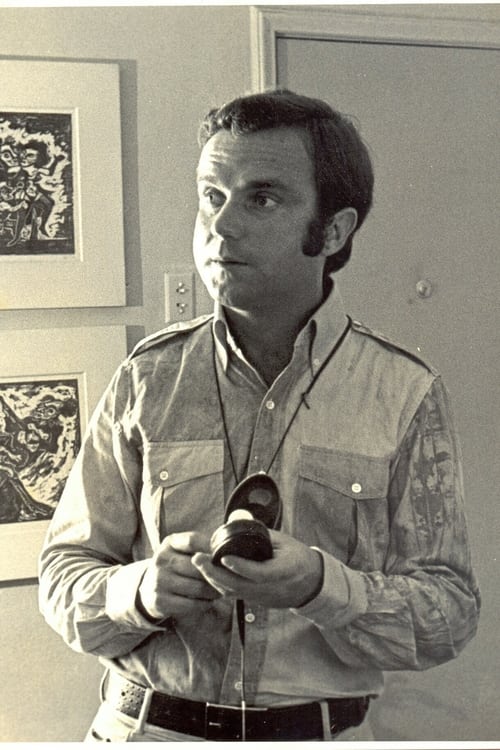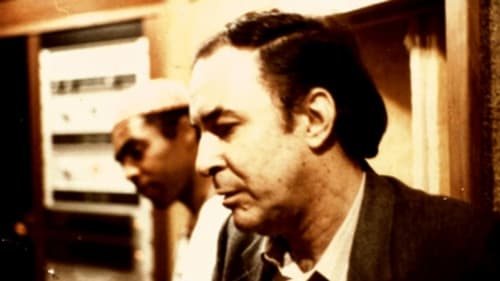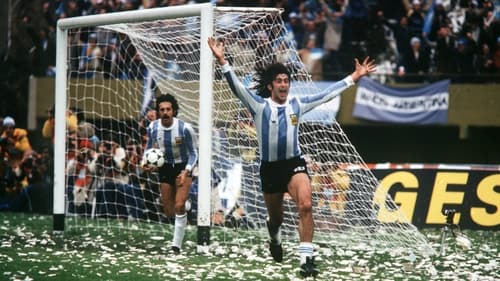
Roland Henze
출생 : 1937-04-14, Nova Friburgo, Rio de Janeiro, Brazil
사망 : 2007-09-20
약력
Roland Werner Henze, Director of photography, producer and director. In the 50s in his hometown, he made Super-8, wrote film reviews for the newspaper "A Paz", founded a film club, organized festivals and film screenings. In the first half of the 60s, he was an intern for 5 years on German TV in Munich. He shoots documentaries for foreign TV networks, such as the North American CBS (New York) and the British BBC (London). Debut as an illuminator in the rural drama, Lords of the Earth. He creates the light for the tape in episodes “Um é pequeno ... Dois é bom”, the only feature length by director Odilon Lopez. Then, he photographed the musical Em Ritmo Jovem, the comedy Um Virgem na Praça and erotic comedies, as well as assistant director and photographer of the box-office hit Com a Cama na Cabeça. He is responsible for lighting the last film on the episodic Brutos Inocentes, by veteran filmmaker Libero Luxardo, whose filming took place in the city of Belém do Pará. In addition to his work as an illuminator, he is co-producer of the drama A Volta do Filho Pródigo, by Ipojuca Pontes. He is one of the illuminators of the documentary Copa 78, the Power of Football, about the World Cup in Argentina. His collection today contains invaluable images, which, from 1950 to 2006, recorded the evolution of cinema, industry, countryside, cities, cultural ethnicity, society, performing arts and the Brazilian political-economic structure.

Director of Photography

Director of Photography
Argentina, as hosts in 1978, were under great pressure to succeed. Amidst passionate supporters, they progressed to the finals with a wonderful blend of attacking football and tough defending. The unlucky Dutch, now lacking Cruyffs' sublime skills, were the fall guys once again in the Final, losing 3-1 in a classic clash of styles. This 1991 reedited version omits controversial interviews from the 1978 original "Copa 78 - O Poder do Futebol", while also including additional television footage of the tournament and newly dubbed English narration instead of the original Spanish.

Director of Photography
João Gilberto receives Caetano Veloso, Gilberto Gil and Maria Bethânia during the recording of his album Brasil.

Director of Photography
Two thousand fishermen, living in a 50-kilometer stretch of the coast of Rio de Janeiro, between Macaé and Cabo Frio, are threatened with paralyzing their activities. An anhydrous alcohol production plant, located on the banks of the São João River, is causing water pollution, with the indiscriminate release of "vinhoto", a by-product of sugar cane. It prevents the penetration of sunlight into rivers and compromises their oxygenation. Pollution, carried by the current, is already reaching the sea waters. Fishermen, scientists and technicians denounce the plant's procedure, which puts the health of the region's inhabitants and the traditional fishing economy at risk."

Editor
Two thousand fishermen, living in a 50-kilometer stretch of the coast of Rio de Janeiro, between Macaé and Cabo Frio, are threatened with paralyzing their activities. An anhydrous alcohol production plant, located on the banks of the São João River, is causing water pollution, with the indiscriminate release of "vinhoto", a by-product of sugar cane. It prevents the penetration of sunlight into rivers and compromises their oxygenation. Pollution, carried by the current, is already reaching the sea waters. Fishermen, scientists and technicians denounce the plant's procedure, which puts the health of the region's inhabitants and the traditional fishing economy at risk."

Director
Two thousand fishermen, living in a 50-kilometer stretch of the coast of Rio de Janeiro, between Macaé and Cabo Frio, are threatened with paralyzing their activities. An anhydrous alcohol production plant, located on the banks of the São João River, is causing water pollution, with the indiscriminate release of "vinhoto", a by-product of sugar cane. It prevents the penetration of sunlight into rivers and compromises their oxygenation. Pollution, carried by the current, is already reaching the sea waters. Fishermen, scientists and technicians denounce the plant's procedure, which puts the health of the region's inhabitants and the traditional fishing economy at risk."

Editor
In its narrow and winding streets, there are still churches, the old and rich houses in ruins and the houses of the poor, recalling the lavish past of the city of Laranjeiras, in Sergipe.

Director
In its narrow and winding streets, there are still churches, the old and rich houses in ruins and the houses of the poor, recalling the lavish past of the city of Laranjeiras, in Sergipe.

Director
The film features biographical data on one of the most popular Brazilian poets -- CASIMIRO DE ABREU.

Director of Photography
Eduardo is a prosperous publicist from Rio de Janeiro, married to Sandra, but feeling sexually impotent, he seeks out a famous psychoanalyst. In an attempt to discover the source of the problem, they go to Eduardo's country house and find his wife's cousin, one of his lovers. A problem arises and Eduardo returns to town, but a storm prevents him from traveling and he returns home, surprising the doctor with his wife in bed.

Editor
Record of the importance of Confeitaria Colombo in cultural life from the beginning of the century, in Rio de Janeiro, to the present day.

Director of Photography
Record of the importance of Confeitaria Colombo in cultural life from the beginning of the century, in Rio de Janeiro, to the present day.

Executive Producer
Record of the importance of Confeitaria Colombo in cultural life from the beginning of the century, in Rio de Janeiro, to the present day.

Director of Photography
Documentary about the Football World Cup held in Argentina in 1978, focusing on the competition and behind the scenes of the most important soccer competition in the world. Two versions of the 1978 official film exist, the first "Copa 78 - O Poder do Futebol" was made by Brazilian directors Maurício Sherman and Victor di Mello in 1979 but was later withdrawn by FIFA because of its controversial content. The film includes an interview with Rodolfo Galimberti, one of the leaders of the Montoneros guerrilla group and also made accusations that the Argentinian competition organisation committee had deliberately hindered Brazilian chances of success by tampering with the pitch at Mar del Plata.

Director of Photography
Counting on her looks, beautiful and mysterious woman blackmails powerful businessmen involved in fishy schemes, getting everything she wants from them in return for her silence.

Executive Producer
Unemployed, penniless in the big city and after accidentally stealing and killing his landlady, Antonio flees Rio de Janeiro towards Northeast of Brazil to find his mother. On the way he meets a beautiful woman and a pair of criminals.

Director of Photography
Unemployed, penniless in the big city and after accidentally stealing and killing his landlady, Antonio flees Rio de Janeiro towards Northeast of Brazil to find his mother. On the way he meets a beautiful woman and a pair of criminals.

Writer
The existence of a musical band and its importance to the community.

Director
The existence of a musical band and its importance to the community.

Director of Photography
The existence of a musical band and its importance to the community.

Director of Photography

Director of Photography
A drama in the amazonian country.

Writer

Director of Photography

Director

Director of Photography
"Lula, 'bon vivant' who subsists at the expense of small blows, goes on with his life without a present or future purpose. Basically, he just tries to forget having been abandoned by his fiancee Helena, who gave in to his father's imposition. The situations in which he gets involved from then on are paradoxical, trying to survive in the best possible way and spending money he doesn't have, but which comes to him in one way or another. On a day of complete despair, Lula meets a group of "hippies" and leaves catechized. Willing to anything, he becomes a preacher of new customs and new ethics of life. In turn, Helena, whose marriage had failed, dreams of meeting Lula again, hoping to return to his arms.

Director of Photography

Director of Photography

Director of Photography

Director of Photography
Um é Pouco, Dois é Bom is a Brazilian film, with an urban theme, produced and filmed in Porto Alegre, Rio Grande do Sul, in 1970. The film is divided into two parts (Com um Pouquinho de Sorte and Vida Nova Por Acaso) that have different character cores and independent narrative structures.

Director of Photography
Focusing on aerial and terrestrial scenes, it shows the urbanization of Barra da Tijuca, in Rio de Janeiro, according to a project by urban planner Lucio Costa and architect Oscar Niemeyer.

Director of Photography
Two pickpockets live in a world where they dream of social elevation.

Director of Photography

Director of Photography
The day of the washing of Christ the Redeemer, on top of Corcovado, made by the brothers, Dilson and Floriano, who once a year face this difficult task.

Director
The day of the washing of Christ the Redeemer, on top of Corcovado, made by the brothers, Dilson and Floriano, who once a year face this difficult task.

Editor

Director

Director of Photography




